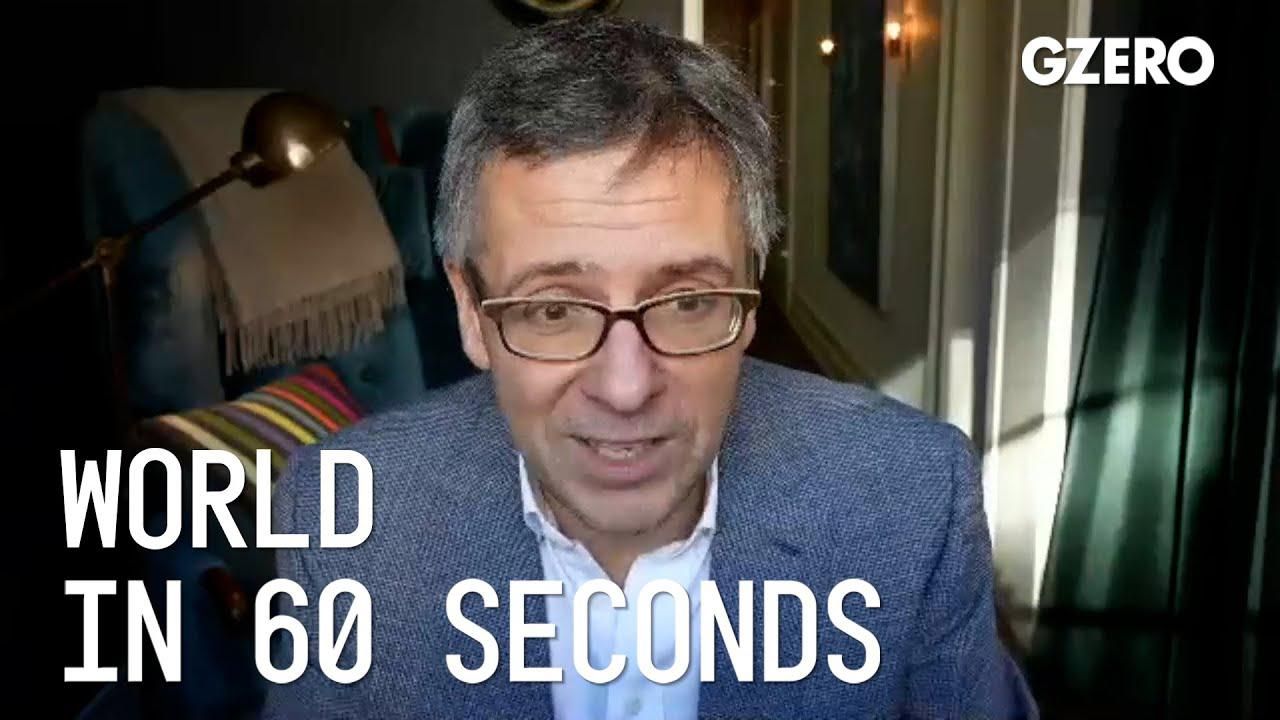Ian Bremmer shares his insights on global politics this week on the anniversary of the January 6 Capitol insurrection, Trump's endorsement of Viktor Orbán, and Novak Djokovic's avoidance of vaccination rules.
A year later, what should we call the Jan. 6? A coup attempt? A riot? An insurrection? Domestic terrorism?
I think I'd go with an insurrection, since it was the former president, sitting president of the United States who had not been re-elected, claimed he was re-elected, and called on his supporters to march on the Capitol building, and didn't stop them when they occupied it illegally. The whole “Hang Mike Pence” thing does imply insurrection. Doesn't imply domestic terrorism. Very few of them were trying to engage in political violence, though I think certainly, a few were. And a riot by itself doesn't really hit it.
But I also want to say that I'm very sympathetic to many of the people that did march on the Capitol. I mean, if your president, and the Republicans in office, and the media is telling you that the election was stolen, and you're following their exhortations to do something about it, that's actually what the United States stands for. So I blame the authorities a hell of a lot more than I do the people that hit the Capitol on Jan. 6. And I think they should sue those people, because we are a litigious society.
Why is Trump endorsing Viktor Orban?
Well, because he is the most strongly Euro-skeptic, anti-EU leader in the European Union. And Trump strongly opposes a strong Europe. We saw that with his pro-Brexit stance. We saw that with his support for Marine Le Pen in France, and it plays out with Viktor Orban. And the fact that he is a xenophobe, anti-immigration, and is an authoritarian anti-democrat, those are features, not bugs, but that's not fundamental to it, all of which is kind of embarrassing, but par for the course, for the former president.
Vaccine skeptic, Novak Djokovic was granted a medical exemption to compete in the Australian Open. Does this set a bad precedent?
Well, I mean, it sets the precedent that the world tennis organization really cares about having its number one star play in the Australian Open. They're looking for money, and they're looking for great tennis. And I mean, obviously, if you're the best tennis player in the world, you can't expect the same rules are going to apply to you as would apply to everybody else. I mean, if it works in politics, why wouldn't it work in the politics of tennis? It's kind of sad, but it will make for a better Australian Open, and I'm sure that's why they made the decisions. So, there you go. Be like Djokovic, I guess. And I wish he was not an anti-vaxxer, but that's "If wishes were horses," as they say, "even my grandma would ride."
- What went down in 2021? 2021 in review - GZERO Media ›
- The worst time to enter Congress: Republican Congresswoman ... ›
- Five choices - GZERO Media ›
- Is Hungary in for an "anyone but Orbán" election? - GZERO Media ›
- The WTA ditches China over Peng. Is an Olympic boycott next ... ›
- January 6 anniversary: America's back — against the wall? - GZERO Media ›
- January 6 anniversary: America's back — against the wall? - GZERO Media ›
- January 6th: One year later | Ian Bremmer's Quick Take ›
- Fiona Hill: January 6 rioters should sue Trump - GZERO Media ›
More For You
In this Quick Take, Ian Bremmer addresses the killing of Alex Pretti at a protest in Minneapolis, calling it “a tipping point” in America’s increasingly volatile politics.
Most Popular
Who decides the boundaries for artificial intelligence, and how do governments ensure public trust? Speaking at the 2026 World Economic Forum in Davos, Arancha González Laya, Dean of the Paris School of International Affairs and former Foreign Minister of Spain, emphasized the importance of clear regulations to maintain trust in technology.
Will AI change the balance of power in the world? At the 2026 World Economic Forum in Davos, Ian Bremmer addresses how artificial intelligence could redefine global politics, human behavior, and societal stability.
Ian Bremmer sits down with Finland’s President Alexander Stubb and the IMF’s Kristalina Georgieva on the sidelines of the World Economic Forum to discuss President Trump’s Greenland threats, the state of the global economy, and the future of the transatlantic relationship.
